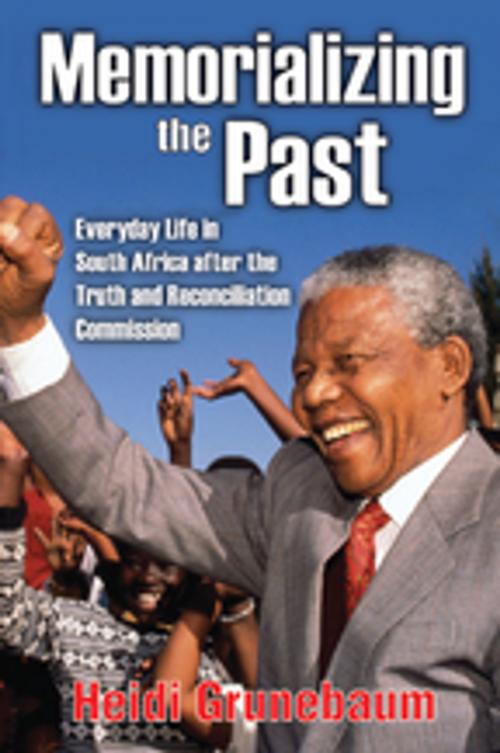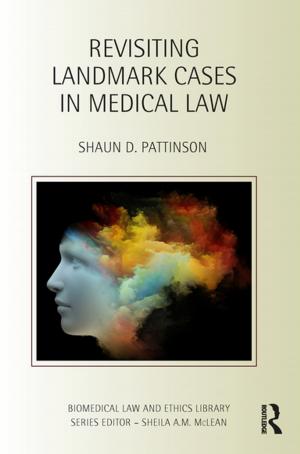Memorializing the Past
Everyday Life in South Africa After the Truth and Reconciliation Commission
Nonfiction, Social & Cultural Studies, Social Science, Sociology, Political Science| Author: | ISBN: | 9781351506106 | |
| Publisher: | Taylor and Francis | Publication: | July 28, 2017 |
| Imprint: | Routledge | Language: | English |
| Author: | |
| ISBN: | 9781351506106 |
| Publisher: | Taylor and Francis |
| Publication: | July 28, 2017 |
| Imprint: | Routledge |
| Language: | English |
This work is a meditation on the shaping of time and its impact on living with and understanding atrocity in South Africa in the wake of the Truth and Reconciliation Commission (TRC). It is an examination of the ways that the institutionalization of memory has managed perceptions of time and transition, of events and happenings, of sense and emotion, of violence and recovery, of the past and the new. Through this process a public language of memory has been carved into collective modes of meaning. It is a language that seems deprived of the hopes, dreams, and possibilities for the promise of a just and redemptive future it once nurtured.Truth commissions are profoundly implicated in the social politics of memorialization. Memory, as a conceptual, historical, and experiential discourse about the past, relates to the ways in which cruelty is integrated into societal understandings, which include cognitive and philosophic frameworks and constructions of social meaning. The politics of historical truth, of memory and of justice, play out in unintended ways. There is not only the ongoing struggle for survivors of state terror, but also the ways that the everyday shapings of silences, the emptiness of reconciliation and the fracturing of hope remain embedded in political life.
This work is a meditation on the shaping of time and its impact on living with and understanding atrocity in South Africa in the wake of the Truth and Reconciliation Commission (TRC). It is an examination of the ways that the institutionalization of memory has managed perceptions of time and transition, of events and happenings, of sense and emotion, of violence and recovery, of the past and the new. Through this process a public language of memory has been carved into collective modes of meaning. It is a language that seems deprived of the hopes, dreams, and possibilities for the promise of a just and redemptive future it once nurtured.Truth commissions are profoundly implicated in the social politics of memorialization. Memory, as a conceptual, historical, and experiential discourse about the past, relates to the ways in which cruelty is integrated into societal understandings, which include cognitive and philosophic frameworks and constructions of social meaning. The politics of historical truth, of memory and of justice, play out in unintended ways. There is not only the ongoing struggle for survivors of state terror, but also the ways that the everyday shapings of silences, the emptiness of reconciliation and the fracturing of hope remain embedded in political life.















